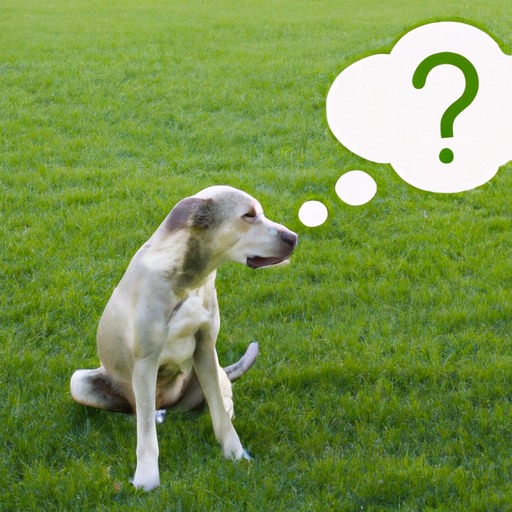1. Understanding Your Dog’s Grass-Eating Behavior
You’ve likely observed your dog munching on a fresh patch of grass, leaving you puzzled and a bit concerned. Why do they do this? Are they bored, hungry, or sick? Is it harmful? As a caregiver, it’s natural for you to worry. But rest assured, this behavior, known as pica, is quite typical among dogs.
Here’s a table summarizing the common reasons why dogs may eat grass:
| Reason | Description |
|---|---|
| Nutritional deficiencies | Dogs might eat grass to make up for a lack of fiber or other nutrients in their diet. |
| Stomach discomfort | They might use grass as a natural remedy for an upset stomach. |
| Boredom | Dogs, especially puppies, may eat grass out of boredom or to get your attention. |
| Instinct | Some theories suggest it’s an inherited behavior from their wild ancestors. |
2. When Should You Be Concerned?
While grass-eating is common in dogs, there are times when it might signal a problem. If your dog is eating grass frantically, then vomiting, or if this behavior is accompanied by other symptoms such as weight loss, lethargy, or changes in appetite, it’s time to consult your vet.
Keep track of the following:
- Frequency of grass eating
- Presence of other symptoms
- Any changes in behavior
3. The Nutritional Perspective
From a nutritional standpoint, dogs are omnivores. They can benefit from both animal and plant-based foods. Sometimes, your furry friend might munch on grass to compensate for a lack of fiber or certain nutrients in their diet.
Consider these tips to ensure a balanced diet:
- Include high-quality, fiber-rich dog food in their diet.
- Occasionally incorporate fruits and vegetables that are safe for dogs.
- Consult with your vet about dietary supplements if needed.
4. The Psychological Aspect
Sometimes, the reason is psychological rather than physical. Dogs might eat grass out of boredom or because they enjoy its texture and taste. As a caregiver, it’s crucial to provide ample stimulation for your dog:
- Regular playtimes
- Long walks
- Interactive toys
- Training sessions
5. How to Discourage Grass Eating
If your dog’s grass-eating habit is causing concern, there are steps you can take:
- Distract them with toys or play when they start eating grass.
- Keep your yard clean and free from temptations.
- Use pet-friendly deterrents on your lawn.
FAQs
Q: Is eating grass harmful to my dog?
A: Generally, no. But it can be if the grass is treated with pesticides, fertilizers, or other chemicals.
Q: My dog is eating grass and vomiting, what should I do?
A: If your dog is frequently eating grass and vomiting, it’s best to consult your vet.
Q: How can I stop my dog from eating grass?
A: Provide a balanced diet, enough exercise, and mental stimulation. If the behavior persists, consult your vet.
Remember, as a caregiver, your understanding and patience are vital in dealing with your dog’s behaviors. Be observant, stay informed, and when in doubt, always consult with a professional.



